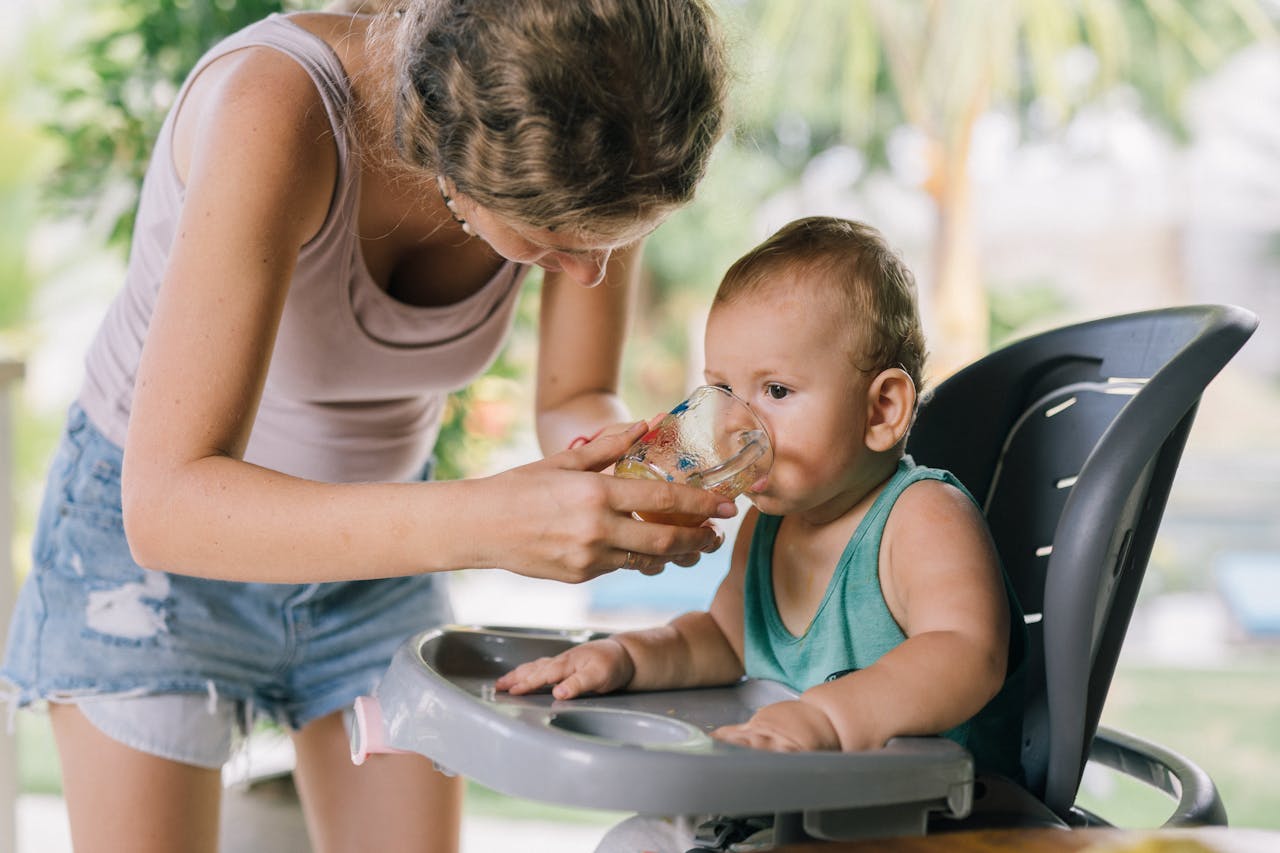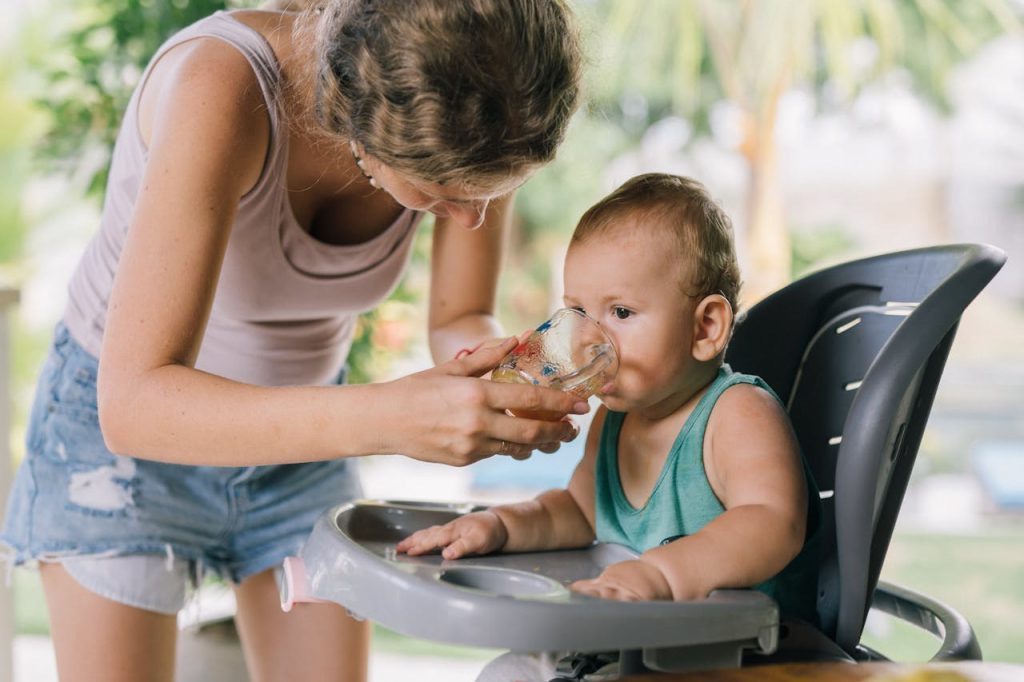
Check the Beverages
When it comes to beverages for babies, breast milk or formula should be the primary sources of hydration and nutrition during the first six months of life. After six months, when introducing solid foods, you can also begin to offer small amounts of water in an age-appropriate manner. Here’s an elaboration on beverages for babies:
Breast Milk
Breast milk is the ideal source of nutrition for infants, providing essential nutrients, antibodies, and hydration. It’s recommended as the sole source of nutrition for the first six months of life and can continue to be a significant part of a baby’s diet alongside solid foods for up to two years or longer.
Formula
For babies who are not breastfed, infant formula provides complete nutrition that meets their needs for growth and development. There are different types of formula available, including cow’s milk-based, soy-based, and hypoallergenic options, depending on the baby’s specific needs or dietary preferences.
Water
After six months of age, small amounts of water can be introduced to babies, especially when they start eating solid foods. Offer water in a sippy cup or a small, open cup to encourage learning drinking skills. It’s essential to offer water between meals and not to replace breast milk or formula feedings with water, as babies still need the nutrients and calories provided by breast milk or formula.
Juice
Juice is not necessary for a baby’s diet and should be limited due to its high sugar content. If you choose to offer juice, it’s best to wait until at least one year of age and dilute it with water to reduce sugar intake. Offer only 100% fruit juice in small amounts (no more than 4 ounces per day) and preferably as part of a meal to minimize the risk of tooth decay and excessive calorie intake.
Avoid Sugary and Caffeinated Beverages
Avoid offering sugary beverages such as soda, flavored drinks, sweetened teas, or energy drinks to babies. These beverages provide empty calories and can contribute to tooth decay and unhealthy weight gain. Similarly, avoid offering caffeinated beverages like coffee, tea, or caffeinated sodas to babies.
Transitioning from Bottles to Cups
As babies grow older and become more independent with drinking, transition from bottles to sippy cups or open cups. This helps develop oral motor skills and prevents tooth decay associated with prolonged bottle use.
Consultation with Healthcare Providers
Always consult with pediatricians or healthcare providers regarding specific recommendations for introducing beverages to babies, especially if there are concerns about allergies, intolerances, or medical conditions.
In summary, breast milk or formula should be the primary beverages for babies during the first six months, followed by the gradual introduction of water alongside solid foods. Juice should be limited and offered in small amounts, while sugary and caffeinated beverages should be avoided. Transitioning from bottles to cups can support healthy drinking habits as babies grow older.







